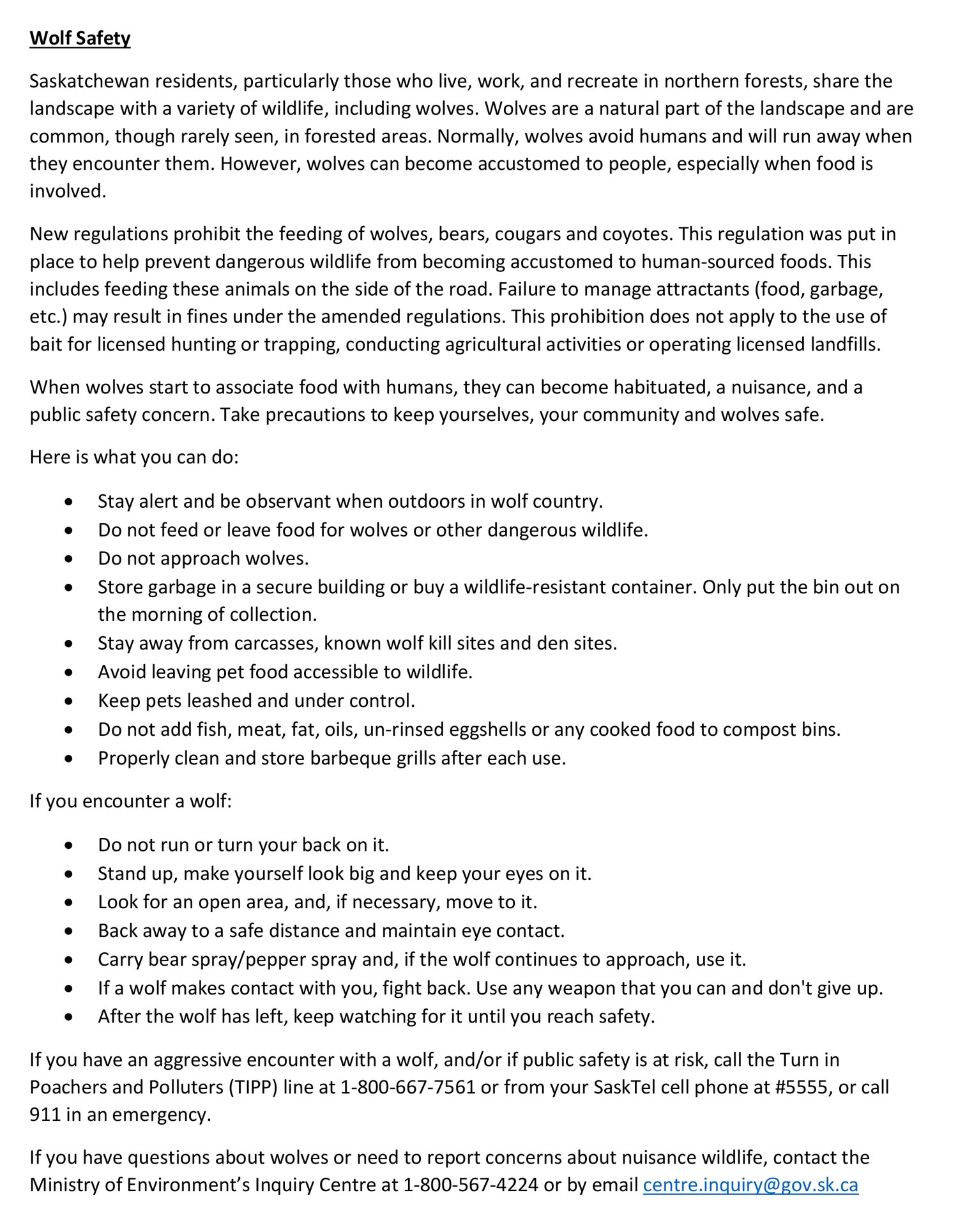PDF Download – Wolf Safety Information
Saskatchewan residents, particularly those who live, work, and recreate in northern forests, share the landscape with a variety of wildlife, including wolves. Wolves are a natural part of the landscape and are common, though rarely seen, in forested areas. Normally, wolves avoid humans and will run away when they encounter them. However, wolves can become accustomed to people, especially when food is involved. New regulations prohibit the feeding of wolves, bears, cougars and coyotes. This regulation was put in place to help prevent dangerous wildlife from becoming accustomed to human-sourced foods. This includes feeding these animals on the side of the road. Failure to manage attractants (food, garbage, etc.) may result in fines under the amended regulations. This prohibition does not apply to the use of bait for licensed hunting or trapping, conducting agricultural activities or operating licensed landfills. When wolves start to associate food with humans, they can become habituated, a nuisance, and a public safety concern. Take precautions to keep yourselves, your community and wolves safe.
Here is what you can do:
- Stay alert and be observant when outdoors in wolf country.
- Do not feed or leave food for wolves or other dangerous wildlife.
- Do not approach wolves.
- Store garbage in a secure building or buy a wildlife-resistant container. Only put the bin out
on the morning of collection. - Stay away from carcasses, known wolf kill sites and den sites.
- Avoid leaving pet food accessible to wildlife.
- Keep pets leashed and under control.
- Do not add fish, meat, fat, oils, un-rinsed eggshells or any cooked food to compost
bins. - Properly clean and store barbeque grills after each use.
If you encounter a wolf:
- Do not run or turn your back on it.
- Stand up, make yourself look big and keep your eyes on it.
- Look for an open area, and, if necessary, move to it.
- Back away to a safe distance and maintain eye contact.
- Carry bear spray/pepper spray and, if the wolf continues to approach, use it.
- If a wolf makes contact with you, fight back. Use any weapon that you can and don’t give
up. - After the wolf has left, keep watching for it until you reach safety.
If you have an aggressive encounter with a wolf, and/or if public safety is at risk, call the Turn in Poachers and Polluters (TIPP) line at 1-800-667-7561 or from your SaskTel cell phone at #5555, or call 911 in an emergency.
If you have questions about wolves or need to report concerns about nuisance wildlife, contact the Ministry of Environment’s Inquiry Centre at 1-800-567-4224 or by email [email protected]
Image File:
